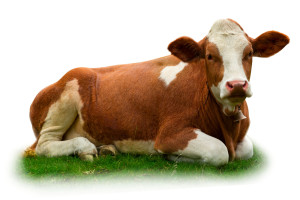Q fever
November 7th, 2013Q fever is an infectious disease which was discovered in 1937 by Dr Edward Derrick, a pathologist at the Royal Brisbane Hospital after an outbreak of febrile illness in Queensland abattoir workers.
It occurs after exposure to wild and domestic animals, with the most common animal sources being cattle, sheep, goats, kangaroos, camels and cats. It is highly infectious and people can become infected after exposure to contaminated straw, wool, hair, hides, manure and urine of animals. This exposure can be airborne, so that for example farmer’s wives can become infected after washing clothes exposed to animals with Q fever. It is now reported from all continents in the world except Antarctica and, surprisingly, New Zealand.
Q fever is a notifiable disease, and every year about 300 new cases are reported which have been acquired in Queensland. Queensland has one of the highest rates of new Q fever cases in the world. Many cases occur in rural Queensland in farmers or their relatives. Cases are rarely reported from abattoirs nowadays, as all abattoir workers have pre-employment screens with blood and skin tests. These workers then receive the Q fever vaccine if these tests show no prior exposure to Q fever. Interestingly, at least 10% of Queensland cases occur in patients with no risk factors for the disease.
Acute Q fever usually causes an acute febrile illness with high fever, muscles aches, and headache. It can progress to chronic Q fever which can involve several organs, the most serious and common of which is chronic heart valve infection. Some patients will also go on to develop a post Q fever chronic fatigue syndrome.
Q fever vaccine is available at our travel clinic and is licensed for use in adults and teenagers 15 or more years of age. It is recommended for farmers and people living on farms or in rural Queensland, abattoir workers, stockyard workers, shearers, animal transporters, veterinarians and veterinary clinic staff, zoo workers and laboratory workers who work with animals.
If you are interested in receiving the vaccine, please call 07 3221 9066.
After completing a questionnaire, you will be given a skin and blood test to check whether you have had previous exposure to Q fever. If these tests are negative, you will be able to receive the Q fever vaccine.
The costing for Q fever vaccination is complicated by several things
Further to the medicare issue: Medicare benefits are not payable where:





I own a cattle property near Goomeri. I had a Q Fever vaccination on 11/3/2005. Is there a requirement to have a booster shot
You dont ever need a booster, one vaccine is enough for life.